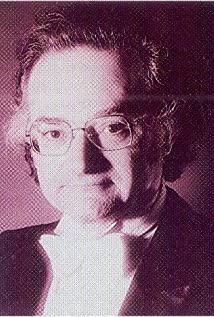The film captures the last days of the heroine's life played by Aunt Mei. This woman has passed away, her face is no longer, her body is bulky and deformed, and the syphilis bacteria infects her entire body. She has to rely on wigs, false eyelashes, and thick hair. Make-up, extremely gorgeous and exaggerated clothing can conceal the haggard appearance. She is really unfortunate. She got sick from her ex-husband and worked hard for more than ten years. Her left hand was nervous and she found it difficult to press the keys of her beloved piano. But she was also lucky because of the heroine played by Uncle Hugh. Accompanying, what was supposed to be a bleak life turned out to be a colorful movement in the end.
Does he love her? Maybe it is. A woman who has no talent but loves to sing has a lifelong wish to go to Carnegie Hall to sing for thousands of people and receive countless admiration eyes. It's just that any person with normal ears, whether it is a luthier, a music critic, a tuner, or an audience, can hear the sound from her throat running out of tune, making people want to laugh and laugh. But what about that? He is willing to do his best to build a fairy tale world like the "emperor's new clothes". All listeners and music critics are carefully selected. He plays twelve points in the background and carefully observes their reactions to ensure that they Only the sounds of praise that make her happy. As for those commenters? Problems that can be solved with banknotes have never been problems. If it can't be solved (the Post reporter doesn't accept bribes, and writes the only music review for Aunt Mei), then buy all the "Post" on the street.
The man treated his wife to the utmost. He took care of her diet and daily life, coaxed her to sleep, took off the wig from her head with the servant, put on a nightcap, and printed a light kiss on her forehead. But he still has to leave. He almost never spends the night with his wife. This platonic relationship has lasted for many years. In this city, there is another home for him, a young, elegant, and somewhat interesting little girlfriend, where he can indulge freely, put aside his gentleman style, and sway his body with the young people, drink and have fun with the music. When his girlfriend was upset, he would take her to play golf in the suburbs. The scene was beautiful, warm and romantic, but at the same time, his wife was lonely and depressed, so she could only go to the small attic of the luthier while washing the dishes. While chatting, I recalled the good times when I met my husband.
Perhaps love is not comprehensive. In Uncle Hugh’s feelings for Aunt Mei, there may be too many other things, sympathy, compassion, respect... Especially Aunt Mei’s love for music is in his bones, so Uncle Hugh Feeling the same, in a sense, she is him, and her success may not be his pride. When Aunt Mei suddenly visited, Uncle Hugh would not hesitate to hide her little girlfriend in the bathroom. Although Aunt Mei might have been aware of these things, she never exposed it; when a group of young people were facing Aunt Mei’s record When his voice laughed wildly, Uncle Hugh would rush to reason like a madman, and even made his little girlfriend deeply sad for this. The two-in-one entanglement between them has long surpassed the secular definition of "love", and may not be satisfactory, but there is no substitute.
At the last moment, he was still with her in front of her bed. Her vision had long been blurred, but she was favored by God in the dimness. She saw the picture she was looking forward to most in her life: she sang the voice that made herself most satisfied, such as It is as graceful as a hymn. After a wonderful performance, she received thunderous applause from the audience, it was a sincere admiration and love, and he also embarrassedly walked out from behind the scenes at her strong invitation, and ended the curtain with her... At this moment She was satisfied, "Some people say I can't sing, but no one can say I didn't sing." This is the last word she left to the world. With a relieved smile, she gradually fell asleep in his tearful eyes. On the fantasy stage, she also let go of his hand.
At the end of the play, the lingering sound in the ears curls up, but the eye sockets are involuntarily moist...
View more about Florence Foster Jenkins reviews











